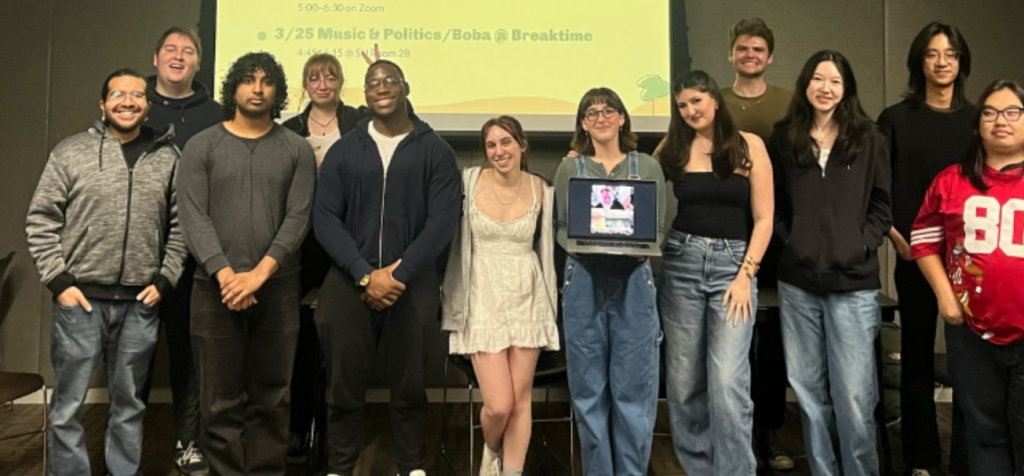BridgeUSA chapters at CU Boulder and San Jose State University show it’s possible to discuss the issue in-depth, with respect and curiosity.
Immigration remains one of the most polarizing and complex political issues in the United States today. Recognizing the importance of nuanced discussions, two BridgeUSA chapters—BridgeSJSU at San Jose State University and BridgeCU at the University of Colorado Boulder—recently hosted thoughtful discussions on the topic. Their goal? To bring students together across ideological divides and encourage productive, informed dialogue.
Margot Catrini, President of BridgeSJSU, organized a large-group discussion centered on immigration policy. The conversation focused on recent policy changes, their impact on students, historical policy shifts, and potential solutions moving forward.
Approximately 20 students attended the event, engaging in a format that encouraged them to articulate their views while also considering opposing perspectives. A unique element of the discussion was requiring students to present a counterargument to their own position. This approach fostered a deeper understanding of different viewpoints and challenged participants to critically engage with the topic.
“Since we live in California, and a sanctuary city, policy on immigration is a little different. Our members were very informed on policy, and the discussion was overall productive,” Margot said of the discussion.
By encouraging viewpoint diversity and critical thinking, BridgeSJSU successfully created a space where students could challenge their own assumptions and broaden their perspectives.

A similar approach paid off at the University of Colorado Boulder. Abby Schaller, President of BridgeCU, led a roundtable discussion on immigration with a particular focus on Trump-era policies such as mass deportations. The event was structured as a Bridge-style discussion, where key questions were projected on a screen to guide the conversation.
With around 25 students in attendance, the discussion quickly revealed that individuals with different opinions often viewed immigration through distinct lenses. One immigrant student, who had obtained legal status, expressed strong support for President Trump’s policies, arguing that mass tolerance of illegal immigration was unfair to those who worked hard for citizenship.
Others voiced serious concerns about the rhetoric used by Trump and his supporters, arguing that terms like “illegal alien” dehumanize migrants and that policies such as family separations create unnecessary harm.
Abby’s biggest takeaway was that most students were engaging with immigration from different angles rather than inherently opposing values.
“I think that having this type of discussion opened members’ eyes to the different sides and perspectives of immigration,” she said.
The discussion remained heated yet respectful, with participants deeply invested in both expressing their perspectives and hearing the other side. By the end, students gained a better understanding of how personal experiences can shape opinions.
Both events demonstrated the power of open, structured discussions in tackling complex political topics. By encouraging students to articulate opposing viewpoints, BridgeSJSU and BridgeCU were able to cultivate an environment of critical thinking. This shows how personal experiences influence perspectives on tough issues like immigration, helping students appreciate the diversity of thought within the discussion.
BridgeUSA chapters continue to lead the way in fostering meaningful, solution-oriented conversations. As immigration remains a major topic in our national discourse, these campus discussions provide a model for civil engagement for other campuses and the rest of the country.
If you’re interested in joining or starting a BridgeUSA chapter, reach out today and be part of the movement to depolarize our campuses, one conversation at a time.
